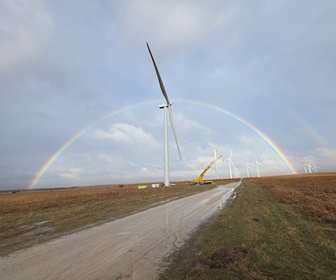The ‘Front-Loading Net Zero’ report, issued by Wärtsilä, states that electricity production costs could be reduced by up to 50% by 2050 if countries and states adopt 100% renewable systems faster than currently planned.
Significant cost reductions can be achieved by front-loading the deployment of renewables, mainly wind and solar photovoltaic, and by utilising the technologies needed to balance their inherent intermittency, such as energy storage and thermal balancing power plants. The report indicates that carbon neutral systems can provide cheaper electricity compared to current fossil fuel-based systems. The report models Germany, India, and California, three markets with vastly different socio-economic dynamics, energy systems, and challenges, demonstrating the cost-optimal path towards 100% renewable power systems in each region. The report reveals that by accelerating 100% renewable power systems, substantial benefits are unlocked:
- Accelerating renewables to become main source of electricity drives down fossil fuel usage, reducing the overall levelised cost of electricity. India can halve its electricity costs by 2050, while California and Germany can cut costs by 17% and 8% by 2040 respectively
- Coal-fired power – 70% of generation in India and 33% in Germany – can be securely replaced by renewables and flexibility from energy storage and thermal balancing power plants as early as 2040.
- Carbon savings can be made in the short term, enabling national climate targets to be achieved. Germany can avoid 422 million tonnes of carbon dioxide by 2040 by accelerating its coal phase-out. This would help achieve its 65% reduction target (compared to 1990 levels) set for 2030.
- Renewables as the main source of primary energy for electricity generation can drive energy independence. For example, Germany could avoid the need to import 550 TWh of power by accelerating the phase-out of coal.
In addition to the deep dive models, the report's chapters focusing on Australia, Chile and the UK’s energy transitions underline that the technologies needed to achieve 100% renewable power systems are already available at scale around the world.









